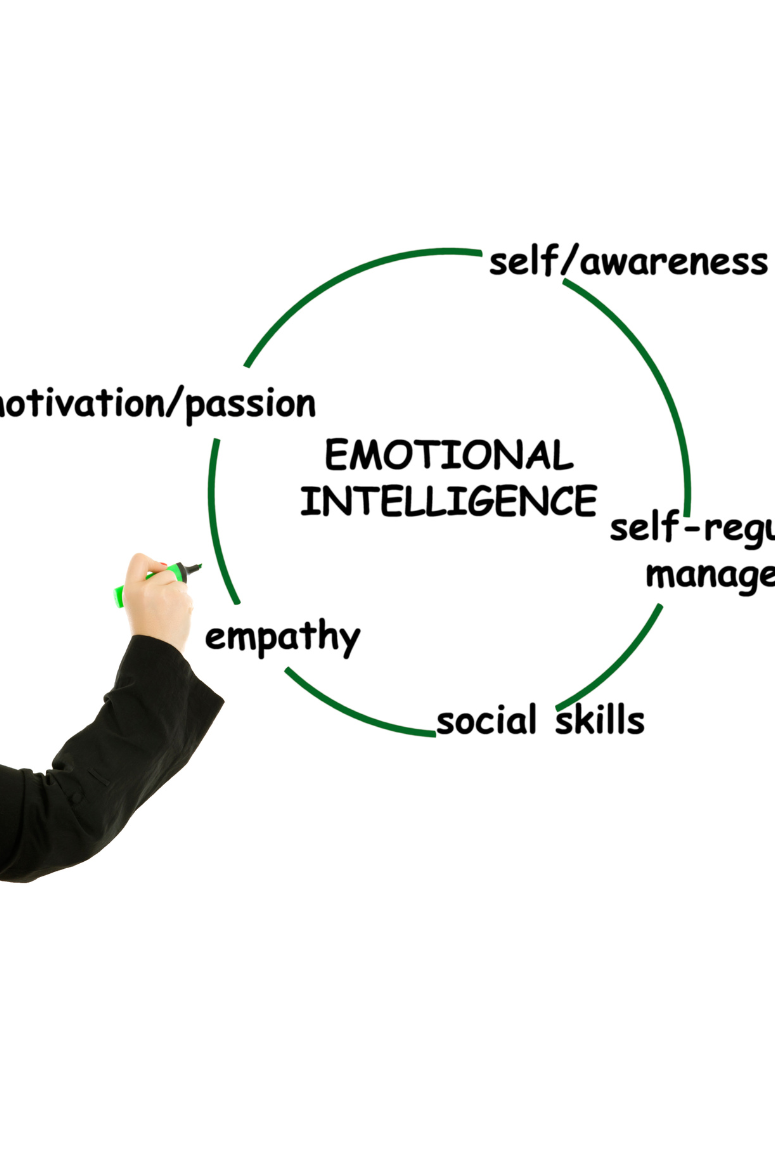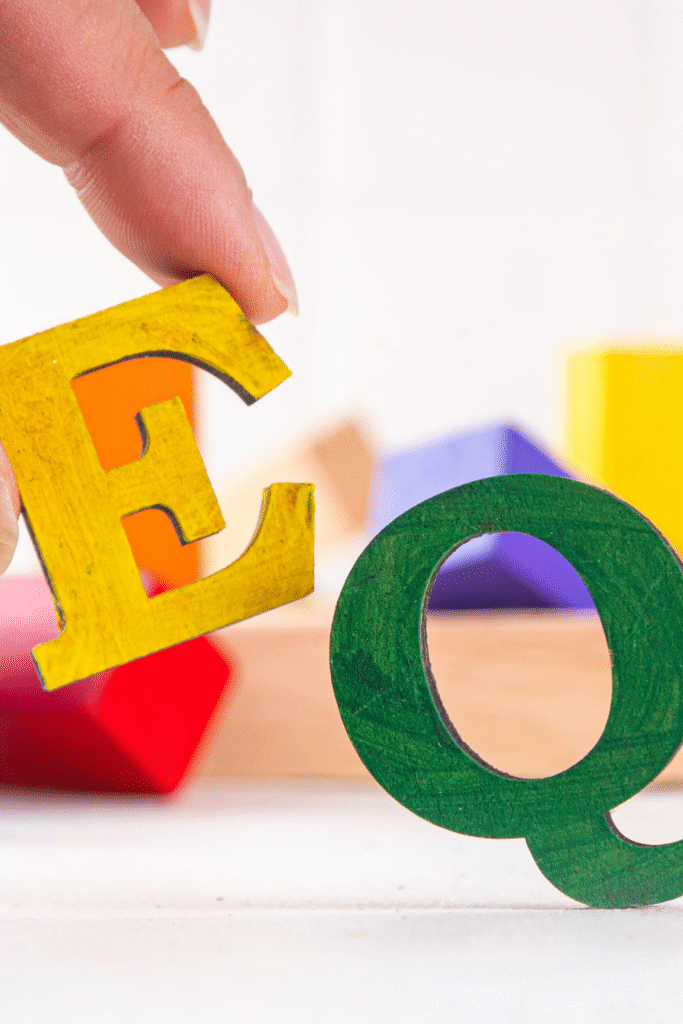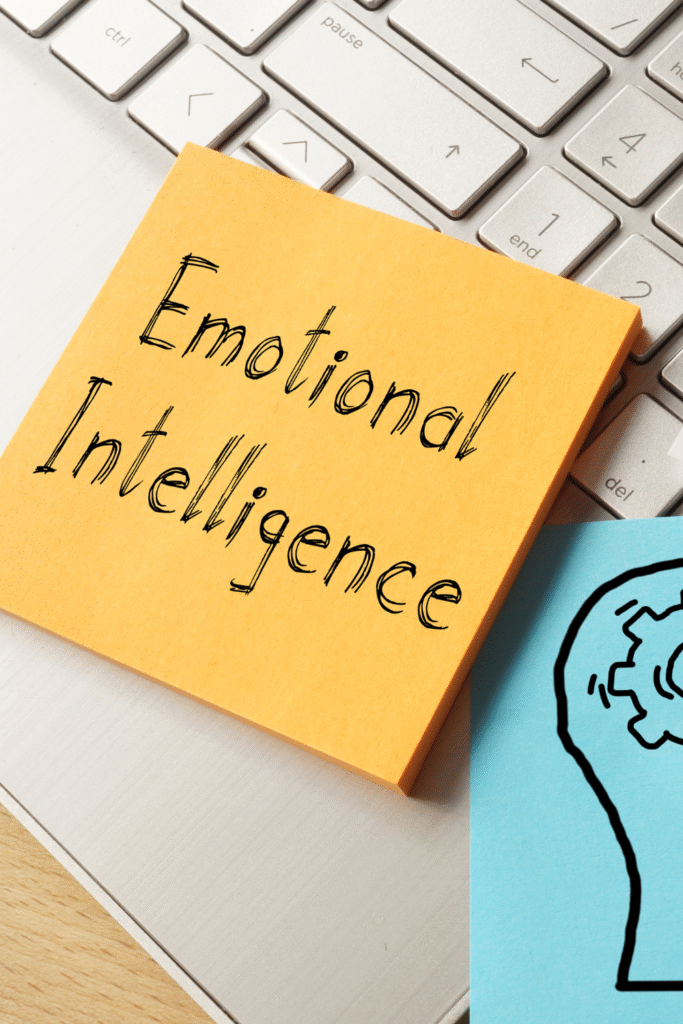Building emotional intelligence (EQ) is key to improving your personal and professional life.
This guide offers actionable strategies to strengthen your EQ, alongside practical examples to help you better understand and apply emotional skills.
Here’s how you can enhance your self-awareness, empathy, emotional regulation, and relationship management starting today.
Table of Contents
- What is Emotional Intelligence?
- Why Emotional Intelligence Matters
- The Five Components of Emotional Intelligence
- Developing Self-Awareness
- Building Empathy
- Mastering Emotional Regulation
- Improving Relationship Management Skills
- Practical Exercises to Boost Your EQ
- Tools and Resources for EQ Improvement
- FAQs About Emotional Intelligence
What is Emotional Intelligence?
Definition: Emotional intelligence refers to the ability to identify, understand, and manage your own emotions, while also recognizing and influencing the emotions of others.
- Key Skills: EQ encompasses skills like self-awareness, emotional control, decision-making, and interpersonal communication.
- It’s not just about “being nice”—it’s about handling emotions effectively and behaving in a way that benefits everyone involved.
- Unlike IQ, EQ can be developed with practice, making it a lifelong skill you can enhance over time.
- Psychologist Daniel Goleman popularized EQ, outlining its five key components.
- Understanding emotional intelligence starts with reflecting on how you handle stress, make decisions, and interact with others.
- EQ impacts relationships, leadership capabilities, and even mental health.
- Research shows high emotional intelligence improves job performance, teamwork, and overall well-being.
- EQ helps individuals adapt to change faster and work through challenges with resilience.
- Think of EQ as your emotional toolkit helping you solve everyday problems more effectively.
- Building emotional intelligence often begins with an honest look inward.
Why Emotional Intelligence Matters
Enhancing your EQ can profoundly impact every aspect of your life.
- Studies reveal that 90% of top performers at work have high emotional intelligence.
- Leaders with strong EQ are better equipped to inspire, guide, and connect with their teams.
- Emotional intelligence aids in conflict resolution by helping you understand other perspectives.
- It’s a critical skill in parenting, allowing you to respond to children with empathy and patience.
- EQ boosts mental health by helping you regulate anxiety and stress through mindfulness.
- Strong emotional skills foster meaningful relationships where trust and understanding thrive.
- It makes communication clearer by ensuring your words and actions align with your intentions.
- EQ plays a role in decision-making by helping you balance logic with emotional insights.
- Cultivating emotional intelligence creates a ripple effect, positively influencing others around you.
- Simply put, EQ is foundational for a happy, healthy, and successful life.
The Five Components of Emotional Intelligence
- Self-Awareness: Understanding your emotions, triggers, and patterns is crucial to personal growth.
- Self-Regulation: Learning to manage your emotional responses appropriately in any situation.
- Motivation: Using emotional insights to stay driven and pursue goals with resilience.
- Empathy: Recognizing and responding to others’ emotions with care.
- Social Skills: Building and maintaining effective interpersonal relationships.
| Component | Focus | Actionable Tip |
|---|---|---|
| Self-Awareness | Recognizing your emotional state | Keep a journal to track moods and triggers |
| Self-Regulation | Handling emotions effectively | Pause and breathe before reacting in tough moments |
| Motivation | Driven by internal goals | Visualize success to stay motivated |
| Empathy | Connecting with others on a deeper level | Practice active listening without interrupting |
| Social Skills | Fostering healthy personal and work bonds | Work on clear and open communication |
Developing Self-Awareness
Self-awareness is the foundation upon which emotional intelligence is built.
- Ask yourself reflective questions like, “Why do I feel this way right now?”
- Identify emotional triggers and patterns over time to manage responses better.
- Practicing mindfulness helps you notice emotions as they arise in the present moment.
- Use journaling to document daily experiences, emotions, and reactions for deeper insight.
- Self-awareness also involves identifying strengths and areas of improvement.
- Pay attention to how your emotions impact your decisions and behavior.
- Seek feedback from trusted peers to uncover blind spots in your emotional habits.
- Understanding your core values helps align your choices with what matters most.
- Time spent on introspection builds a deeper connection with your inner self.
- Remember, increasing self-awareness is an ongoing process, not a one-time achievement.
Building Empathy
Empathy is the ability to step into someone else’s shoes emotionally.
- Start by practicing active listening—focus entirely on the speaker without formulating a reply.
- Pay close attention to nonverbal cues like tone, body language, and facial expressions.
- Validate others’ feelings by acknowledging their emotions without judgment.
- Reading books or watching films about different experiences can expand your empathetic understanding.
- Allow yourself to be vulnerable in conversations to build deeper emotional connections.
- Try perspective exercises that encourage you to see the world through someone else’s lens.
- Empathy fosters trust and helps diffuse tension in challenging situations.
- It’s a key driver of kindness, forgiveness, and improved relationships.
- At work, showing empathy to colleagues fosters collaboration and morale.
- Remember, empathy doesn’t mean agreeing with everyone—it means truly understanding them.
Mastering Emotional Regulation
Managing emotions is essential for navigating life’s ups and downs with composure.
- Recognize your feelings before reacting—this pause can prevent regrettable decisions.
- Develop healthy coping mechanisms like deep breathing, meditation, or exercise.
- Reframe negative thoughts by focusing on what you can control in stressful situations.
- Reducing emotional outbursts strengthens relationships and fosters mutual respect.
- Emotional regulation creates a calm, focused mind that’s better for problem-solving.
- Practice self-soothing techniques to avoid escalating conflict unnecessarily.
- Learning to set emotional boundaries helps protect your mental energy.
- By managing emotions effectively, you become a source of stability for those around you.
- Over time, emotional regulation enhances self-respect by aligning behavior with personal values.
- Emotional control isn’t about suppression—it’s about channeling emotions positively.
Improving Relationship Management Skills
- Foster open communication by being an active listener and showing genuine interest in others’ perspectives.
- Develop empathy to better understand and relate to the emotions and experiences of those around you.
- Practice conflict resolution techniques, such as staying calm, addressing the issue constructively, and seeking win-win solutions.
- Build trust by consistently being honest, reliable, and respectful in your interactions.
- Strengthen collaborative skills by encouraging teamwork and valuing the contributions of others.
- Adapt to different communication styles, allowing you to connect effectively with a wide range of individuals.
- Invest time in cultivating strong bonds by showing appreciation and maintaining consistent engagement in your relationships.
- Learn to give and receive constructive feedback in a way that supports growth and mutual respect.
Practical Exercises to Boost Your EQ
- Practice Active Listening: During conversations, focus entirely on the speaker without interrupting. Reflect back on what you’ve heard to confirm understanding.
- Keep an Emotion Journal: Record your feelings and reactions to daily events. This helps you identify emotional patterns and understand your triggers.
- Self-Reflection Time: Spend 5-10 minutes daily reflecting on your emotions and how they influenced your decisions or interactions throughout the day.
- Empathy Practice: Imagine yourself in someone else’s situation to connect with their emotions. Consider their perspective before responding in conversations.
- Mindfulness Exercises: Practice mindfulness or meditation to increase self-awareness and manage stress effectively. This can improve your emotional regulation over time.
- Role-Playing Scenarios: Work with a friend or mentor to simulate challenging emotional situations, practicing how to respond calmly and constructively.
- Set Emotional Goals: Identify specific emotional skills you’d like to improve, such as patience or conflict resolution, and create a plan to develop them.
- Request Feedback: Ask trusted peers or mentors to provide honest feedback about your emotional awareness and interpersonal skills to help you pinpoint areas of growth.
- Develop Gratitude: Each day, write down three things you’re grateful for. This can foster positive emotions and improve overall emotional well-being.
- Label Your Feelings: When strong emotions arise, consciously name what you feel (e.g., “I feel frustrated”). This helps you understand the emotion rather than reacting impulsively.
Tools and Resources for EQ Improvement
- Journals and Reflection Prompts: Use guided journals or reflection prompts to regularly assess your emotional state and track personal growth over time. This practice can help you identify emotional patterns and improve self-awareness.
- Mindfulness and Meditation Apps: Platforms like Headspace or Calm provide guided meditations and mindfulness exercises designed to enhance emotional regulation and self-awareness.
- EQ Assessment Tools: Take emotional intelligence assessments, such as the EQ-i 2.0 or similar online tools, to pinpoint areas of strength and opportunities for improvement.
- Books on Emotional Intelligence: Read books like Emotional Intelligence 2.0 by Travis Bradberry and Jean Greaves or Dare to Lead by Brené Brown to deepen your understanding and application of EQ principles.
- Workshops and Seminars: Enroll in emotional intelligence workshops, webinars, or professional development courses to learn practical strategies and receive expert guidance.
- Therapy or Coaching: Consider working with a licensed therapist or certified coach. They can provide tailored feedback and strategies to improve emotional awareness and interpersonal skills.
- Social Support Networks: Engage with supportive friends, family, or peer groups who can offer objective insights and encouragement as you work on enhancing your EQ.
The Role of Emotional Intelligence (EQ) in ASL Conversations
Emotional intelligence (EQ) plays a critical role in American Sign Language (ASL) conversations, as it enhances the ability to connect and communicate effectively.
ASL relies heavily on nonverbal cues such as facial expressions, body language, and tone conveyed through movement, making emotional awareness essential.
High EQ enables individuals to interpret and respond to these subtle cues accurately, fostering deeper understanding and empathy.
Additionally, emotional intelligence helps manage emotions during conversations, ensuring that communication remains clear and respectful, even in emotionally charged situations.
By cultivating EQ, ASL users can build stronger and more meaningful connections in both personal and professional settings.
What’s an area where high emotional intelligence (eq) would be most beneficial?
One area where high emotional intelligence (EQ) would be most beneficial is conflict resolution.
During conflicts, emotions often run high, and misunderstandings can quickly escalate tensions. Individuals with strong EQ can recognize their own emotions and those of others, allowing them to approach disagreements with empathy and composure.
They can listen actively, validate differing perspectives, and foster an atmosphere of mutual respect, which is essential for finding common ground.
By managing emotions effectively and communicating thoughtfully, high EQ individuals can de-escalate conflicts and guide all parties toward a resolution that satisfies everyone involved.
This skill is invaluable in both personal relationships and professional environments, where collaboration and harmony are key to success.
FAQs About Emotional Intelligence
- What is EQ in simple terms?
Emotional intelligence is understanding and managing emotions effectively to improve relationships and decisions.
- Can emotional intelligence be improved?
Yes, with effort and practice, anyone can enhance their EQ skills.
- Why is empathy crucial for EQ?
Empathy helps you connect with others and understand their emotions, improving communication and relationships.
- How can I practice emotional regulation daily?
Use mindfulness, breathing exercises, and positive reframing during stressful situations.
- What’s the difference between IQ and EQ?
IQ measures intellectual abilities, while EQ measures emotional understanding and management skills.
- Is emotional intelligence more important than IQ?
Both are important, but EQ often has a greater impact on interpersonal success and leadership.
- Can children develop emotional intelligence?
Yes, kids can learn empathy, self-awareness, and communication skills from an early age.
- What role does EQ play in leadership?
High EQ leaders inspire, connect, and resolve conflicts effectively, creating strong teams.
- How does EQ impact mental health?
Emotional intelligence helps reduce stress, anxiety, and emotional overwhelm, improving overall mental well-being.
- Are there apps to enhance EQ?
Yes, apps like Headspace, Happify, and Positive Intelligence offer EQ-improving activities.
Strengthen your EQ today with these steps, and watch as it transforms your relationships, career, and personal fulfillment. Start incorporating these strategies and practices into your daily life, and experience the difference emotional intelligence can make.












